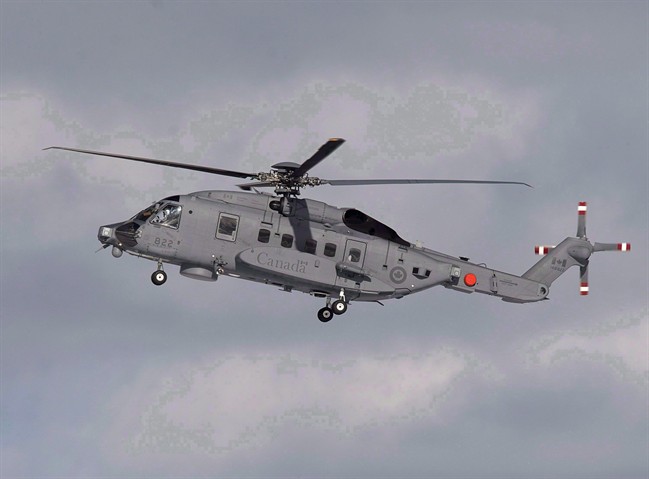The crew of a Canadian Forces helicopter landed the aircraft in a park east of Halifax on Tuesday after they noticed a warning indicator in the cockpit.

No one was injured and no damage was reported after the CH-148 Cyclone touched down in Rainbow Haven Beach Provincial Park in the afternoon.
The Royal Canadian Air Force says the helicopter was on a routine flight near its base at 12 Wing Shearwater, which is on the east side of Halifax harbour.
The military says the aircrew was following standard operating procedures for a “precautionary landing” when the decision was made to head for the seaside park, about 10 kilometres east of the base.
The Department of National Defence did not disclose further details, saying the incident is under investigation.

Get daily National news
The helicopter was towed back to the base along local roads on Tuesday night.
“Returning the aircraft to 12 Wing will enable technicians, flight safety personnel and the aircraft manufacturer … to determine the cause of the cockpit indication,” the military said in a statement.
https://twitter.com/karliaa_b/status/1382154539323777028
The military’s fleet of maritime helicopters was temporarily grounded after a relatively new Cyclone crashed off the coast of Greece on April 29, 2020, killing all six people aboard.
All six were based in Halifax.
The crash in the Mediterranean Sea marked the largest loss of life in one day for the Canadian Armed Forces since six Canadian soldiers were killed in a roadside bombing in Afghanistan on Easter Sunday 2007.
An ongoing Air Force flight safety investigation has been focused on aircraft systems and human factors as possible causes.
In June 2020, the military said preliminary findings indicated the helicopter did not respond the way the crew had expected as the aircraft was coming around to land on the Canadian frigate HMCS Fredericton.
At the time, Air Force officials said the pilot attempted to make a number of manoeuvres while the Cyclone’s “flight director,” or autopilot, was still engaged. Rather than turning off, the autopilot started to work against the pilot before the helicopter crashed into the water at high speed.
This report by The Canadian Press was first published April 14, 2021.








Comments